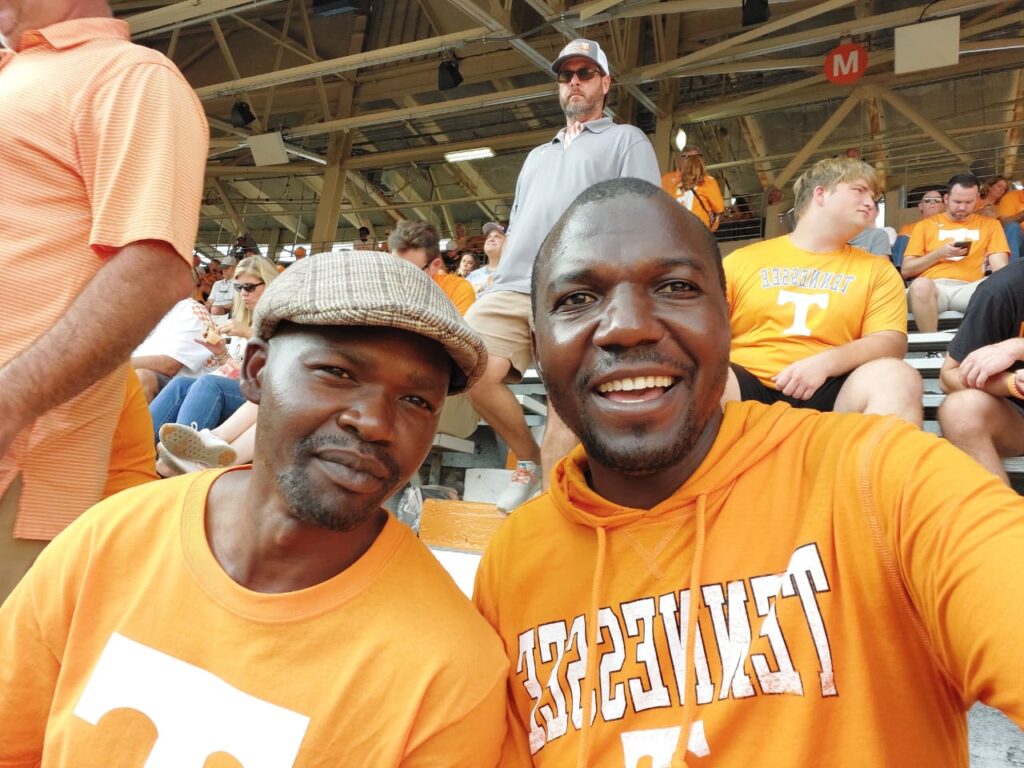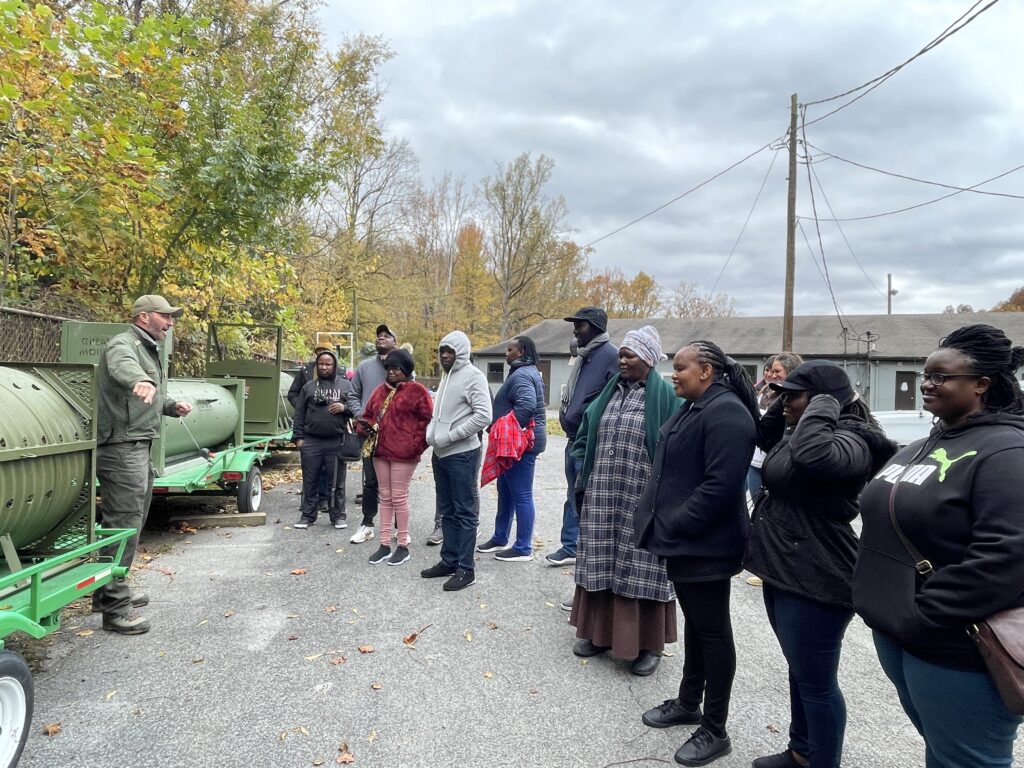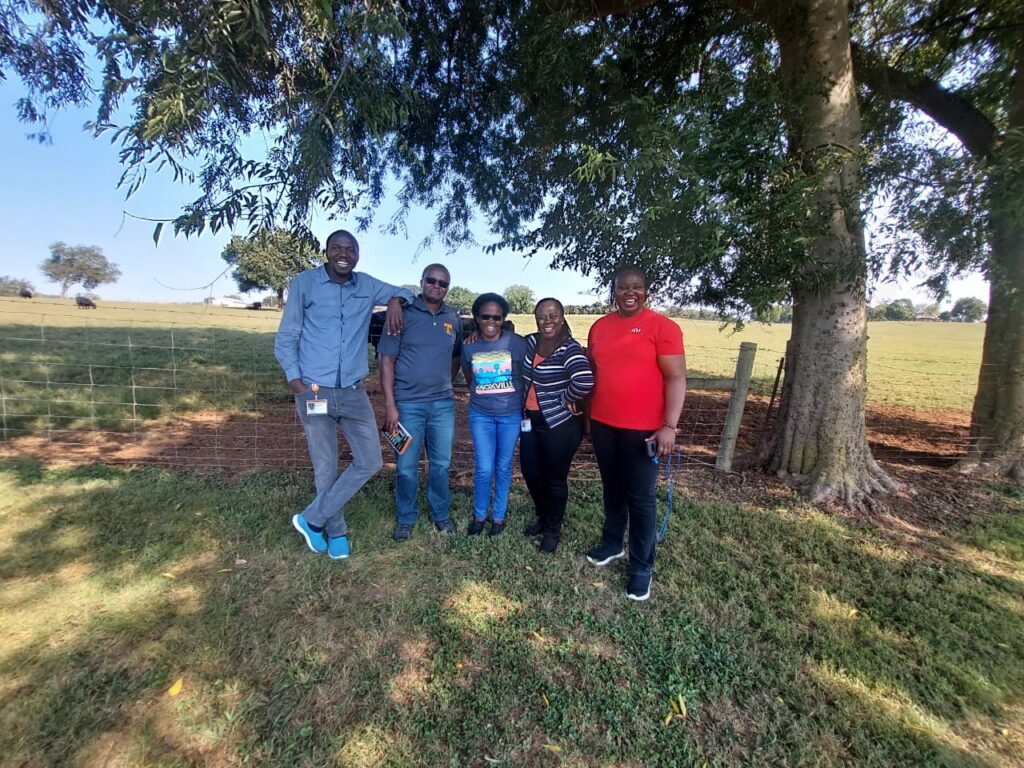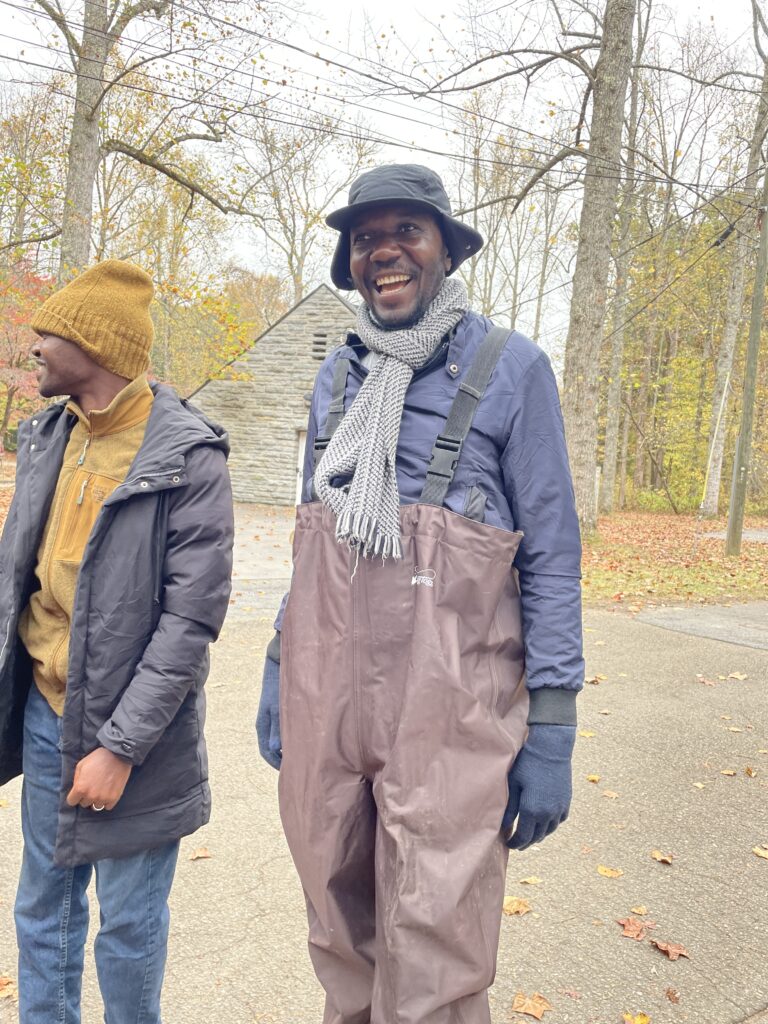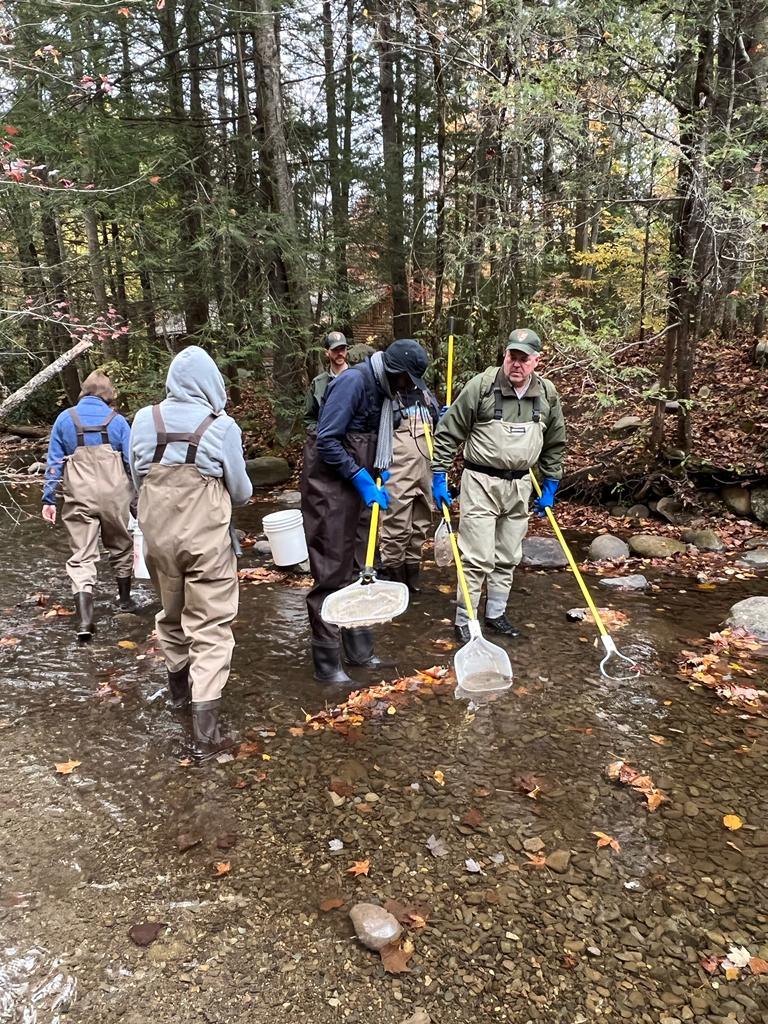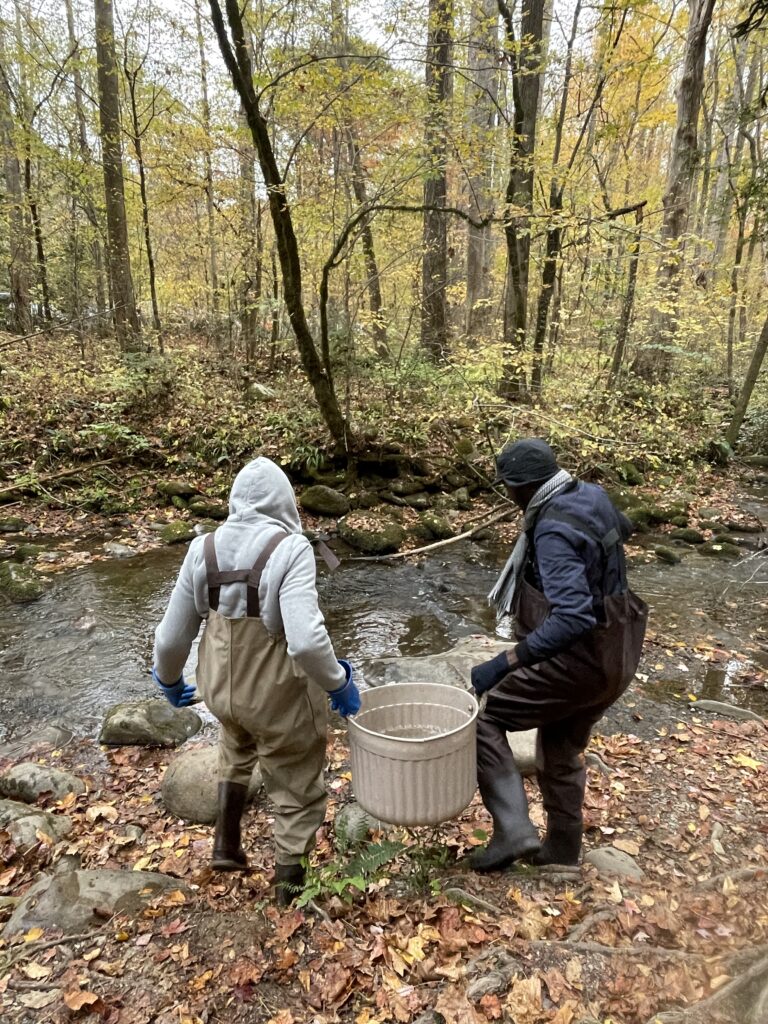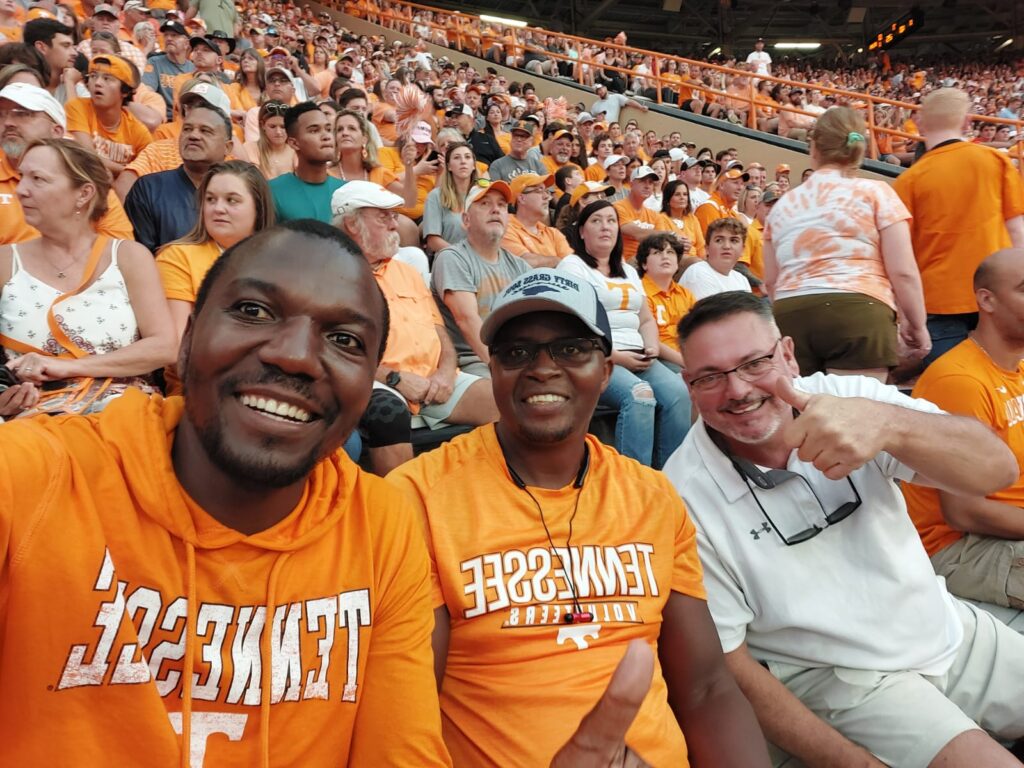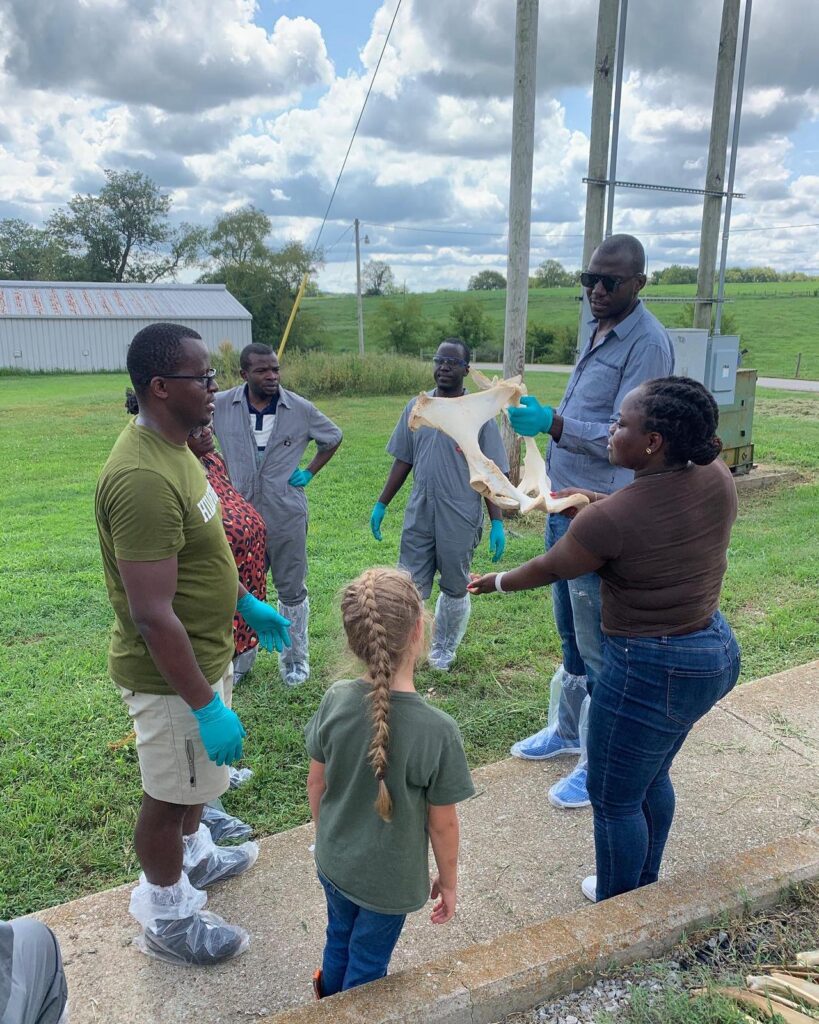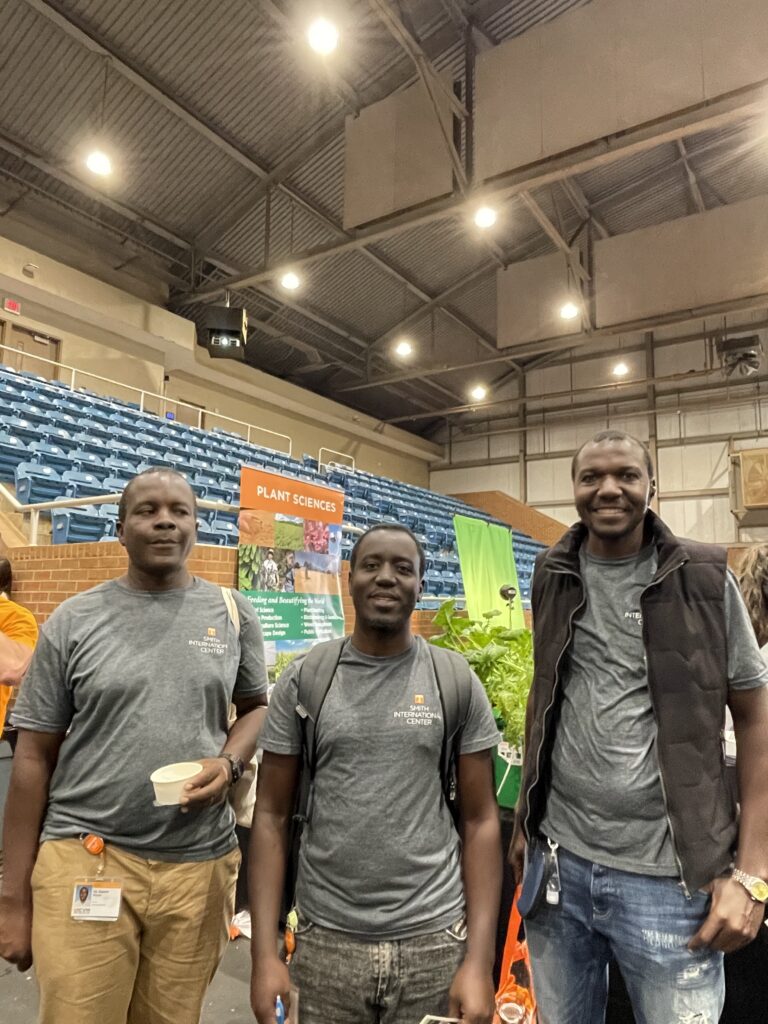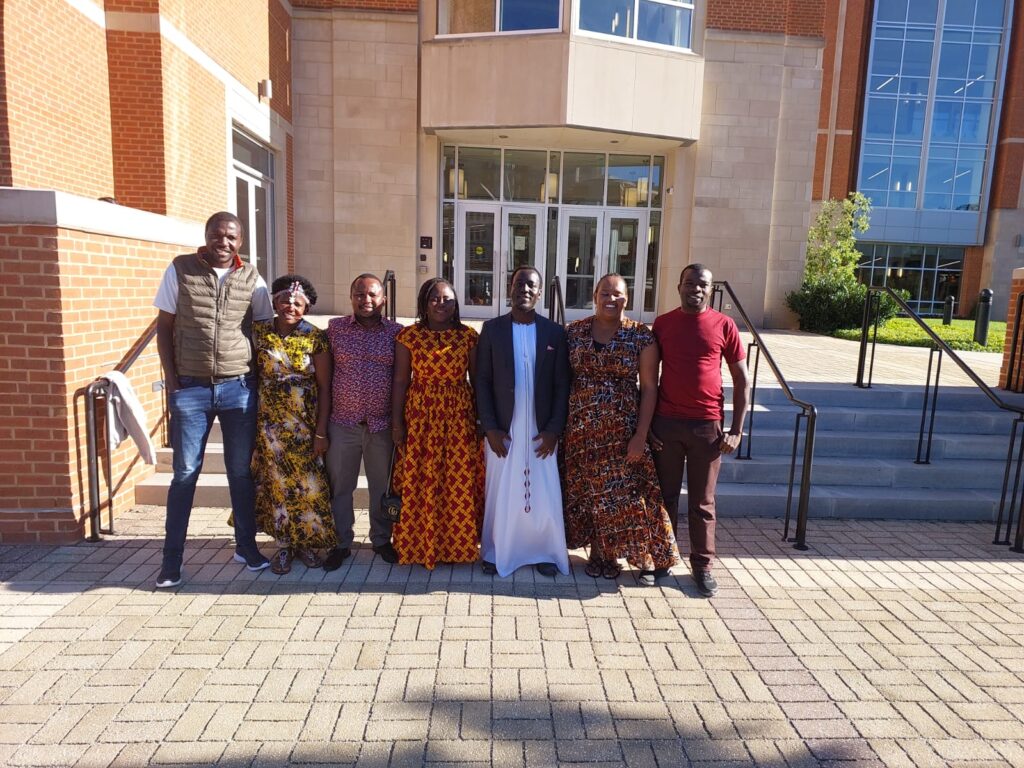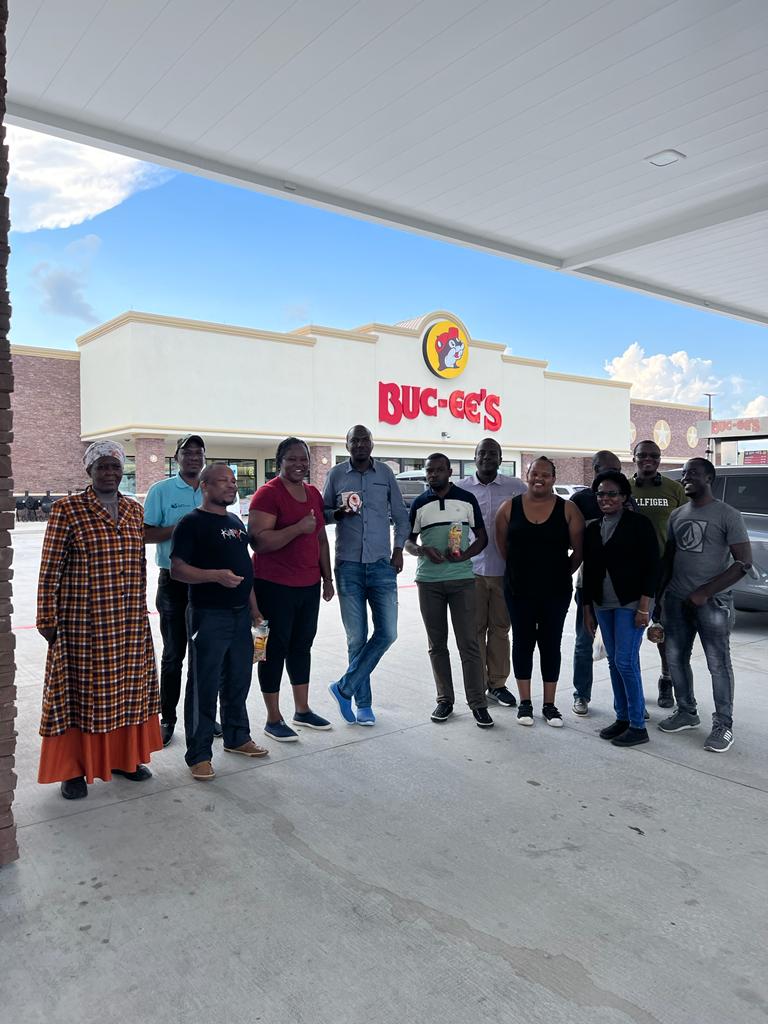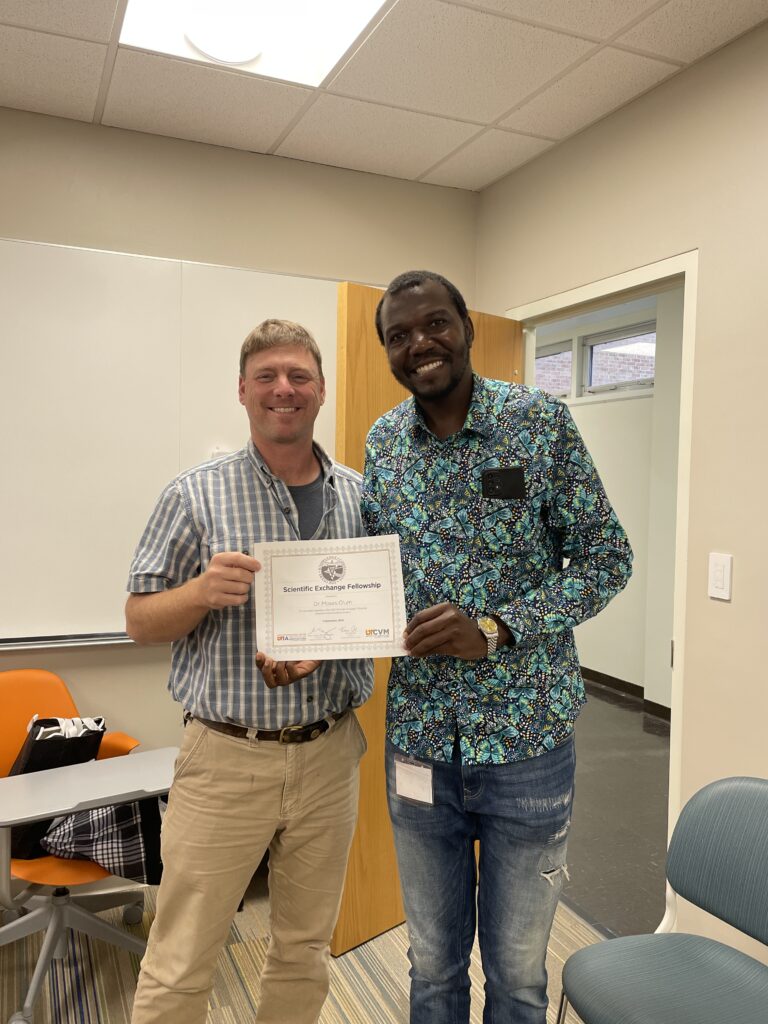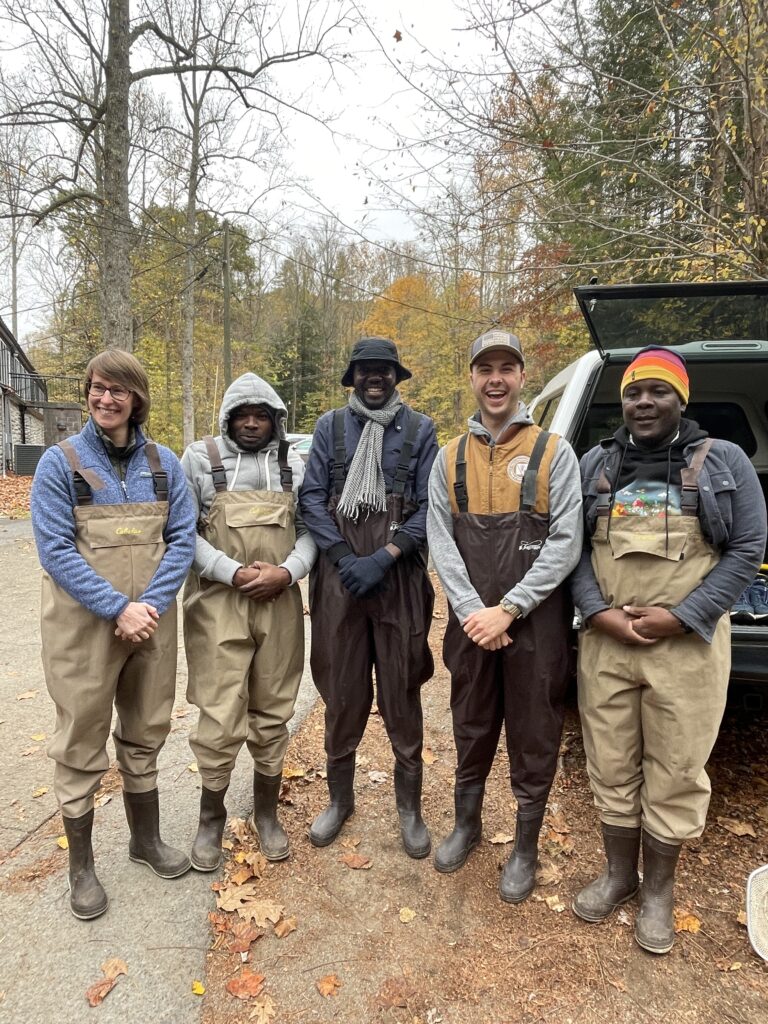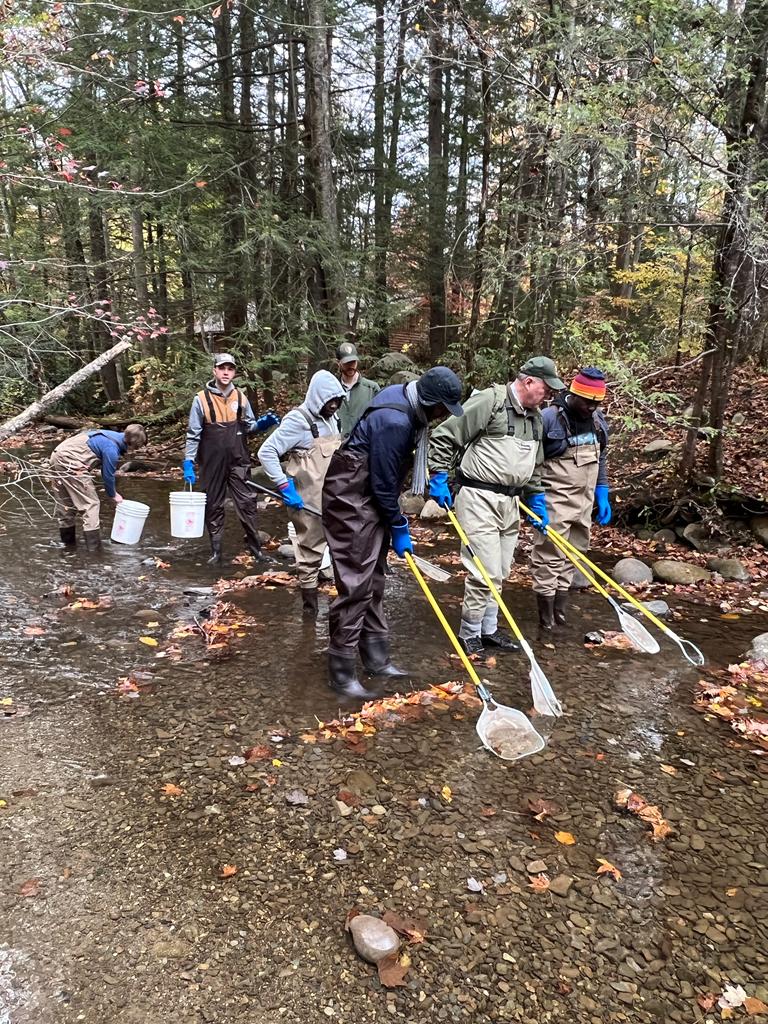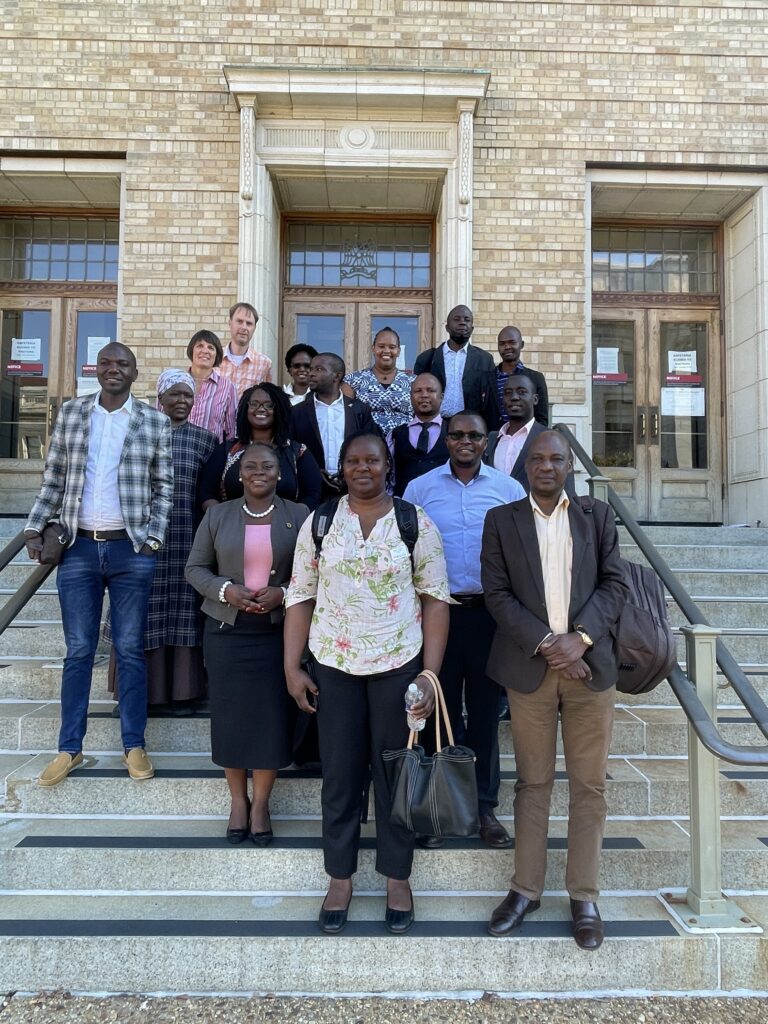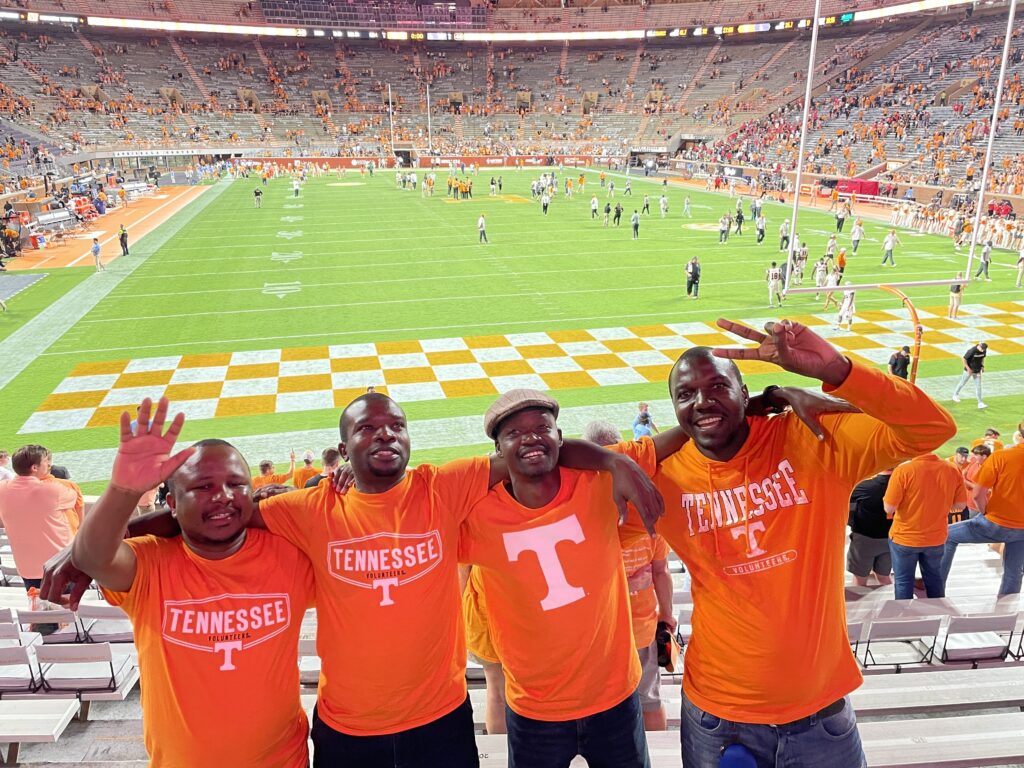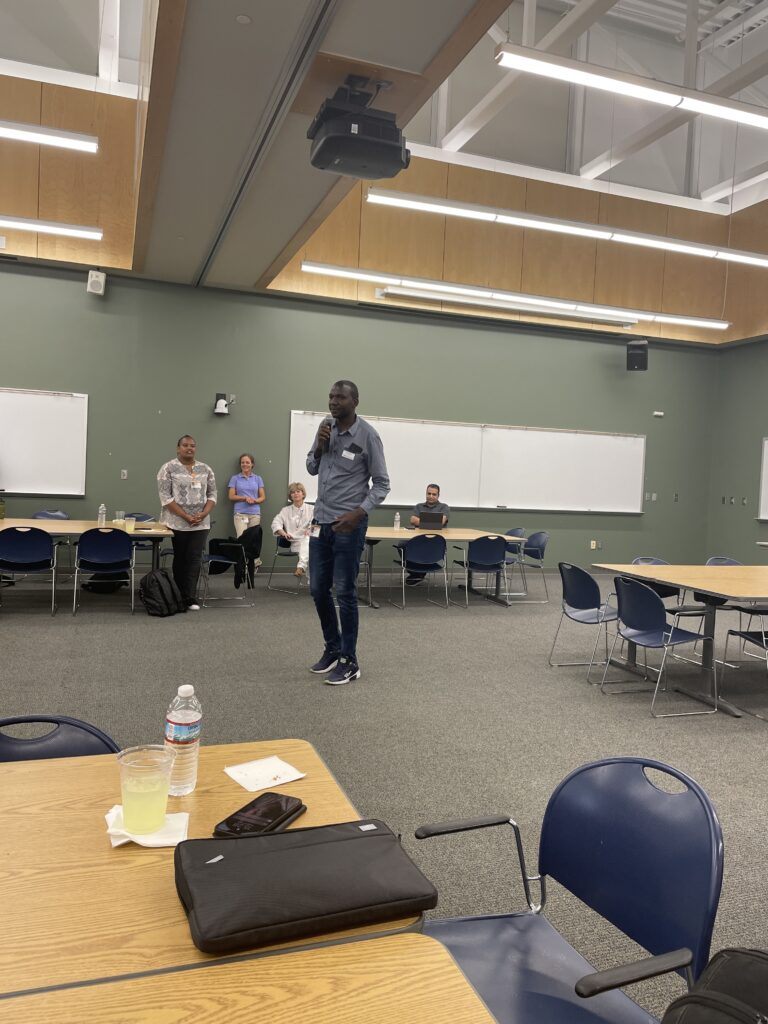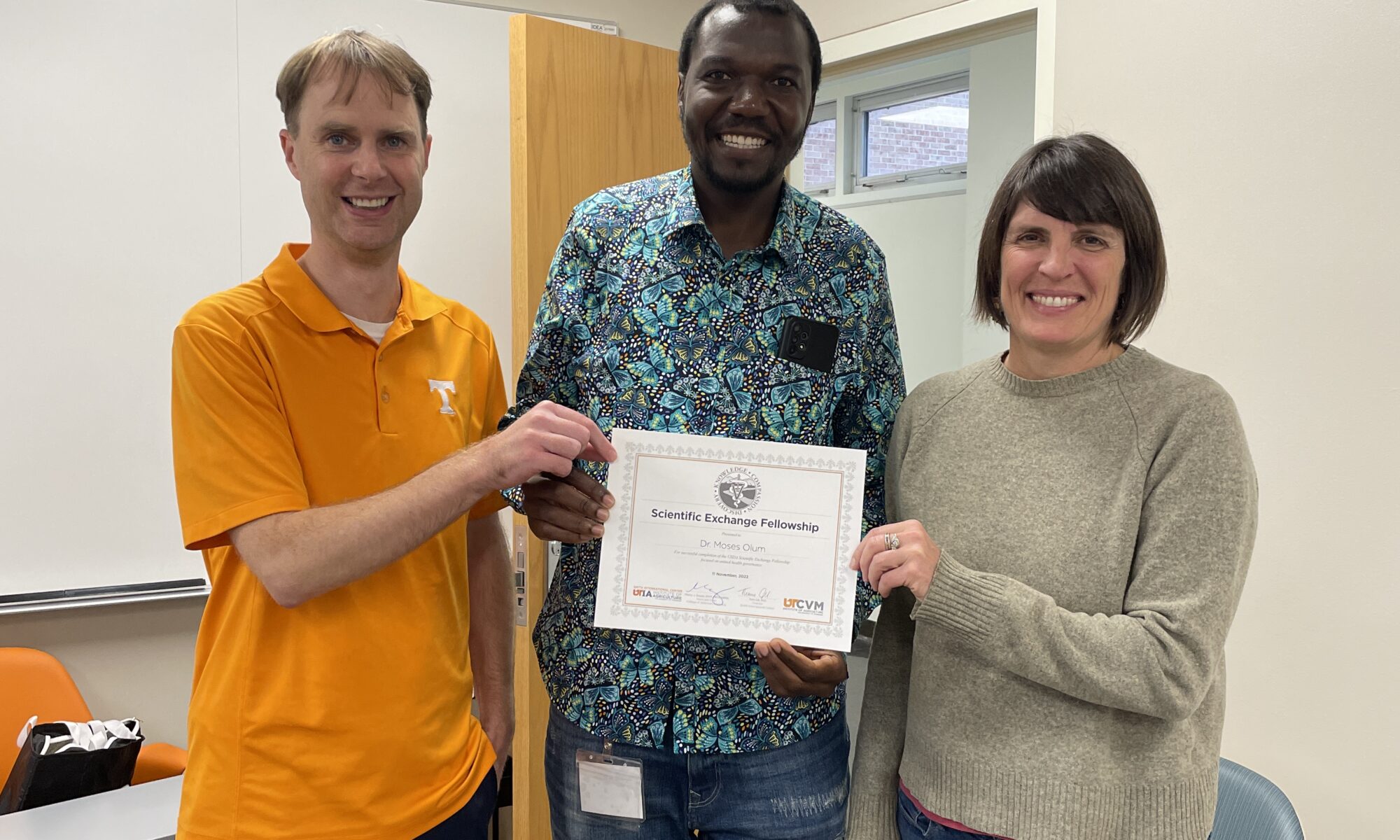
By Brooke Adams
From August to December 2022, the University of Tennessee Institute of Agriculture hosted nine Faculty Exchange Program (FEP) and five Scientific Exchange Program (SEP) fellows from four African countries. These programs are funded through the Foreign Agriculture Service (FAS) at the United States Department of Agriculture (USDA), and they focus on veterinary teacher pedagogy and animal health governance. Marcy Souza, professor and associate dean for outreach and global engagement at UTIA CVM, served as the project lead for both programs. The visiting SEP fellows were all from Kenya, and the FEP fellows were from Ghana, Kenya, Tanzania, and Uganda. They were matched with faculty members from three different UT colleges for mentorship for the duration of their programs. Learn more about each fellow and their mentor throughout this #FacultyExchangeFriday blog series.
Moses Olum is the deputy institute director for the Kenya Agricultural and Livestock Research Organization – Veterinary Science Research Institute and a trained veterinarian. His main focus is working to safeguard the livelihoods of livestock farmers and livestock keeping communities as well as to ensure safety of foods of animal origin. Currently he is working within vaccinology, disease management, and working towards other various technological advancements for Kenya’s livestock industry. Read more about his experience as an SEP fellow below!
Q: What interested you about this program?
When I saw that there was a section of the program about animal health governance, I immediately became interested in it. As someone who is working within the livestock sector in a research capacity, I spend a lot of time thinking about the attention the industry gets and how this influences policy. At the end of the day, the work we do in the labs and fields are eventually implemented by the farmers to improve production. I was drawn towards this program to expand what I know about the policy side of agriculture.
Q: What were some highlights of the program for you?
There have been many different highlights from my time in this fellowship. Two of my professional highlights from this experience include the work ethic we learned and mentorship that we took part in. The faculty at UT are so willing and able to share their knowledge, as well as allowing us into their spaces to learn from them. I was also able to meet and interact with many students that are involved in mentorship and this was something that I really enjoyed. The learning goes beyond just conversations and lectures about the material, each student is having hands-on opportunities allowing for more growth among them. The interactions we had while in this program have been very impactful for me because everyone has been so welcoming, approachable, and willing to talk.
We also had the chance to travel to Atlanta, Georgia where we were able to explore the city for a few days and that was a very fun experience for me. We also attended a conference in Minnesota which was highlight for me because of the exhibits that were displayed there. These exhibits had many different types of new technology and diagnostics that were very interesting to learn about. I was also able to learn about the people’s experiences and how they are involved in the livestock sector.
We were also able to visit multiple UT AgResearch and Education Centers during my time here. When visiting those, I learned that many of the farmers actually implement the practices that UT researches, and I would like to one day have this link between the University of Nairobi and the industry. We also met the dean of extension and she explained how UT Extension is the way to bridge the gap between research and the farmers, so this is something that I will take back with me to keep in mind when doing/implementing research.
Q: What are you next steps following your completion of this fellowship?
The first thing that I would like to implement is a journal club. When I return home, I plan on finding individuals who are interested in gaining experience through a club like this. Learning how to discuss research with others and how to write grants can be very beneficial for scientists and students at the university.
Another thing that I want to look into is broadening our extension program. We have a lot of technologies, innovations, and practices that have come out of the research that the university does. We also need to learn how to bridge the gap between research and the agricultural industry in order to actually apply the practices that we are researching. I would like to work toward trying to link together the technology we have and how it can benefit the farmers.
We do have an extension program, however they currently do not interact heavily with the farmers. I think that we need to encourage the extension program to become more hands-on with the farmers to be more beneficial for them. Because UT is a land-grant university, there is a very strong extension presence. But, in Kenya it is a little bit more difficult to implement this kind of practical research into the industry. These are some more long term goals, but with some extra help and resources, I think that improving this program would be extremely beneficial for the University of Nairobi, as well as the country as a whole.
Q: Why do you view exchange programs like this one as being important?
I think that programs like this are extremely beneficial for fellows because the information we learn is very different than in Kenya. I would like to see this program expand and have the ability to take what we learn here and make it available in an online forum for anyone to access and learn about these kinds of technology and advancements that UT is making. In order to make this program accessible to more people, having an online education program would be very beneficial.
Being able to go to the US is very beneficial because you get the chance to see how efficient the industry can be. When you have access to resources, technology, and education, the industry becomes more efficient. Efficiency can come in the form of time management, experience, and precision. I think that programs like this can lead to a shift in how we think and how we view education within the agriculture industry. I also think that programs like this can help strengthen the trade between Kenya and the US, whether it be a trade of knowledge, goods, or technologies.
Q: What was your favorite part about being at UT and in Knoxville, TN?
My favorite part about being here was experiencing the atmosphere during football games! I really enjoyed having the opportunity to travel to other places while here in Knoxville. We were able to visit a few different states, the Knoxville Zoo, Dollywood, and more. I also loved having interactions with so many people and being able to learn so much from the people around me!
